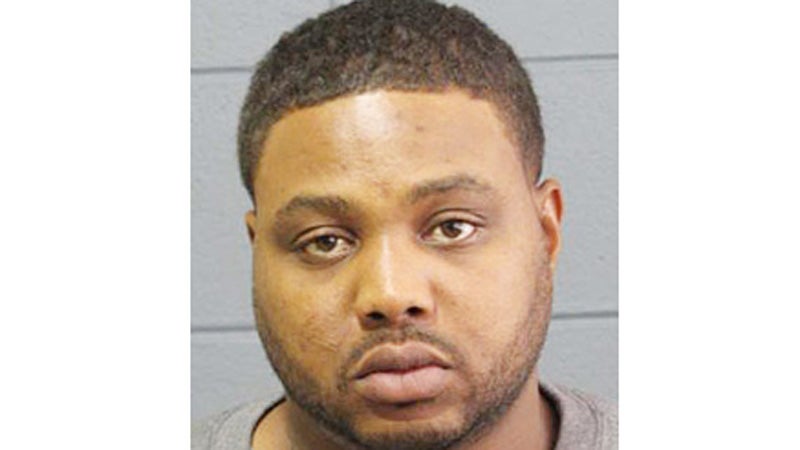New way of thinking may help schools
Published 12:00 am Friday, April 3, 2009
BY DAVID VITRANO
L’Observateur
Improvements in schools do not always come in the form of new technology. Sometimes they present themselves merely as changes in the way one thinks about or performs the job of teaching.
There may be no better example of this in the world of education today than Dr. Lorraine Monroe, director of the School Leadership Academy in New York City.
When she stepped into the halls of Frederick Douglass School in Harlem and took the reins as principal, the school was known for violence, poor attendance and low academic achievement.
She knew from the start it could no longer be business as usual at Frederick Douglass. So she set out to totally remake the school, from the top down. And she did this without the aid of increased funding or fancy new computers. Rather, she brought about the change through remolding her teachers, who, in turn, remolded the students.
As a result of her actions, the school, which she renamed Frederick Douglass Academy, saw test scores rise so much they ranked among New York’s best high schools.
The theories she developed throughout her career, which she implemented in turning the troubled school around, focused to a large degree on instilling a new level of accountability in both students and teachers. But they also centered on a new style of leadership.
According to Monroe, when she began her first stint as principal, in a troubled school in the Bronx, she told the staff, “I want you to be magic.”
She said she herself was unsure of what she meant by those words, but by giving the teachers that freedom, she saw them do wonderful and creative things.
Monroe also firmly believes in hands-on leadership. According to her, leaders should have a firm grasp of what is going on within their institutions and should be able to provide their employees with tangible means for growth.
“I always kept a blackboard in my conference room so that when I met with teachers, I could go to the board and demonstrate a teaching method that I knew would make a difference,” she said. “Part of leadership is being able to demonstrate that you have ability—and that ability is what got you to be the boss.”
St. John the Baptist Parish Schools Superintendent Courtney Millet, who also was both a teacher and a principal before taking her current position, shares Monroe’s philosophy in many ways. Accordingly, she has been a frequent presence in parish schools since becoming superintendent last year.
According to Millet, she knows the importance of dynamic leadership. “As a new superintendent, I have devoted time and resources to develop and implement quality professional development programs for both teachers and principals. That is why I personally strive to engage in practical learning opportunities such as the Leadership Conference at Harvard University where I heard Dr. Lorraine Monroe speak.”
Not surprisingly, Monroe was invited to visit the St. John school district last summer.
While here, she shared her theories and ideas with district leaders.
“She offered practical advice on how to create high achieving schools and transform children’s lives,” said Millet.
Monroe returned in the fall to visit two specific schools—Fifth Ward Elementary and Garyville/Mt. Airy Math and Science Magnet—where she shared specific methods of creating higher performing schools.
Chief among these was the Blackboard Configuration (BBC), whereby teachers organize the day’s lesson in a cohesive, easily understood manner. By having everything mapped out on the blackboard in advance, students are able to focus immediately on the task at hand and not spend time wondering what was and will be taught that day. It also saves teachers the time of orally explaining the lesson plan.
“I was elated when Dr. Millet called to inform me that Dr. Monroe would be coming to our school to pay us a special visit,” said Garyville/Mt. Airy Magnet Principal Kelli Joseph. “Not only did she visit every classroom, I was also able to sit with her one-on-one and ask her tons of questions.”
At the end of her visit, Monroe concluded the two schools were “conducive to learning and headed in the right direction,” according to Millet.
Just because Monroe’s visits have ended, however, does not mean her influence has also ended. Besides the continued use of the BBC, recent professional training initiatives throughout the parish would make the veteran administrator proud.
At a recent districtwide meeting of fourth grade teachers, Dr. James Kirylo, assistant professor in the Education Department at Southeastern Louisiana University, concluded a series of six professional development workshops. In these workshops the teachers sharpened their classroom management skills in a number of areas and saw the ways these different areas interconnect to create a successful atmosphere for learning.
This series of workshops is just one of many signs that the way educators in St. John approach their job is changing for the better.
And while mental changes may be the most difficult to assess—one cannot reach out and touch them like a new computer or electronic dry erase board—a new way of thinking ultimately may be what truly signals a new day in St. John Parish.





